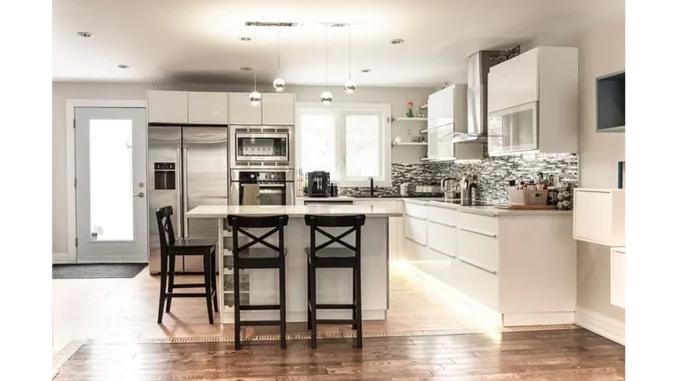
When faced with the dilemma of whether to rebuild or renovate, homeowners often find themselves navigating a maze of considerations. Recently, I had the pleasure of sitting down with Richard Morgan, a seasoned architect with over two decades of experience in the industry. Richard shared valuable insights on how to make this crucial decision, focusing on the merits of adding modern amenities, updating plumbing and electrical systems, and enhancing energy efficiency.
Understanding the Dilemma: Rebuild vs. Renovate
“Deciding whether to rebuild or renovate is not just about the money,” Richard explained. “It’s about understanding the core needs of your home and how each option aligns with those needs.”
Richard pointed out that home renovation typically involves updating existing structures, which can be more cost-effective if the home’s foundation and structure are in good condition. “However,” he added, “if the property has severe structural issues or if you want to completely redesign your living space, rebuilding might be the better option.”
Evaluating Cost-Effectiveness
The conversation naturally shifted to the cost implications. “One of the primary factors homeowners should consider is cost-effectiveness,” Richard noted. “Retrofitting an older home to meet current standards and codes can often be done at a fraction of the cost of a new build.”
For example, Richard highlighted how adding modern amenities, updating plumbing, and electrical systems could significantly improve both the home’s value and livability without the hefty price tag of new construction. “You can modernise a kitchen or bathroom for a relatively low cost, yet these updates can add substantial value to your home.”
Addressing Space Requirements
Many homeowners look to rebuild or renovate because they need more space. “Adding a second story or extending the existing structure can provide the additional room you need without the cost and hassle of a full rebuild,” Richard suggested. “It’s crucial to consult a structural engineer to ensure your foundation can support the additional load.”
Navigating Local Building Codes
Local building codes can also play a significant role in your decision. “In some cases, extensive renovations that increase the property’s value by more than 50% may require you to bring the entire home up to current codes,” Richard explained. “This could make a rebuild more attractive.”
Insurance Implications
Richard also touched upon the impact of renovations and rebuilds on homeowners’ insurance. “Older homes often come with higher insurance premiums due to structural risks and outdated systems,” he said. “Rebuilding to current standards can lower insurance costs and might eliminate the need for additional coverage like flood insurance if you’re in a high-risk area.”
Understanding Buyer Preferences
Future buyer preferences are another essential consideration. “Some buyers are drawn to new construction homes, while others appreciate the character of older homes that have been thoughtfully renovated,” Richard observed. “A home with modern amenities, energy efficiency, and updated systems can be just as appealing as a new build.”
Maximising Return on Investment
Ultimately, the decision should align with your long-term goals and the return on investment (ROI) you expect. “If you plan to sell the property, consider what buyers in your area are looking for,” Richard advised. “A well-executed renovation can increase your home’s market value and appeal, whereas a rebuild can create a brand-new home that commands a premium price.”
Performing a Cost Comparison
Richard strongly recommended creating a detailed cost comparison between renovation and rebuilding. “Include expenses like construction costs, permits, design fees, and potential savings on insurance,” he suggested. “This comparison will help you make a well-informed decision that aligns with your budget and goals.”
Planning for the Future
Finally, Richard emphasised the importance of considering your long-term vision for the property. “Are you planning to live in the home for many years, or is this an investment property?” he asked. “Your plans will influence whether a renovation or a rebuild is more suitable.”
“For instance, if this is your forever home, investing in a rebuild to create a custom space tailored to your needs may be worth the cost,” Richard concluded.
Conclusion
Deciding whether to rebuild or renovate your house is a complex decision that requires careful consideration of costs, benefits, local codes, and personal goals. By thoroughly evaluating these factors and performing a detailed cost comparison, you can make an informed choice that aligns with your vision and financial plans.
Remember to consult with professionals, such as structural engineers and real estate agents, to ensure your decision is sound and feasible. Whether you decide to renovate or rebuild, the ultimate goal is to create a space that meets your needs, enhances your lifestyle, and provides a solid return on investment.
George Smith


Be the first to comment